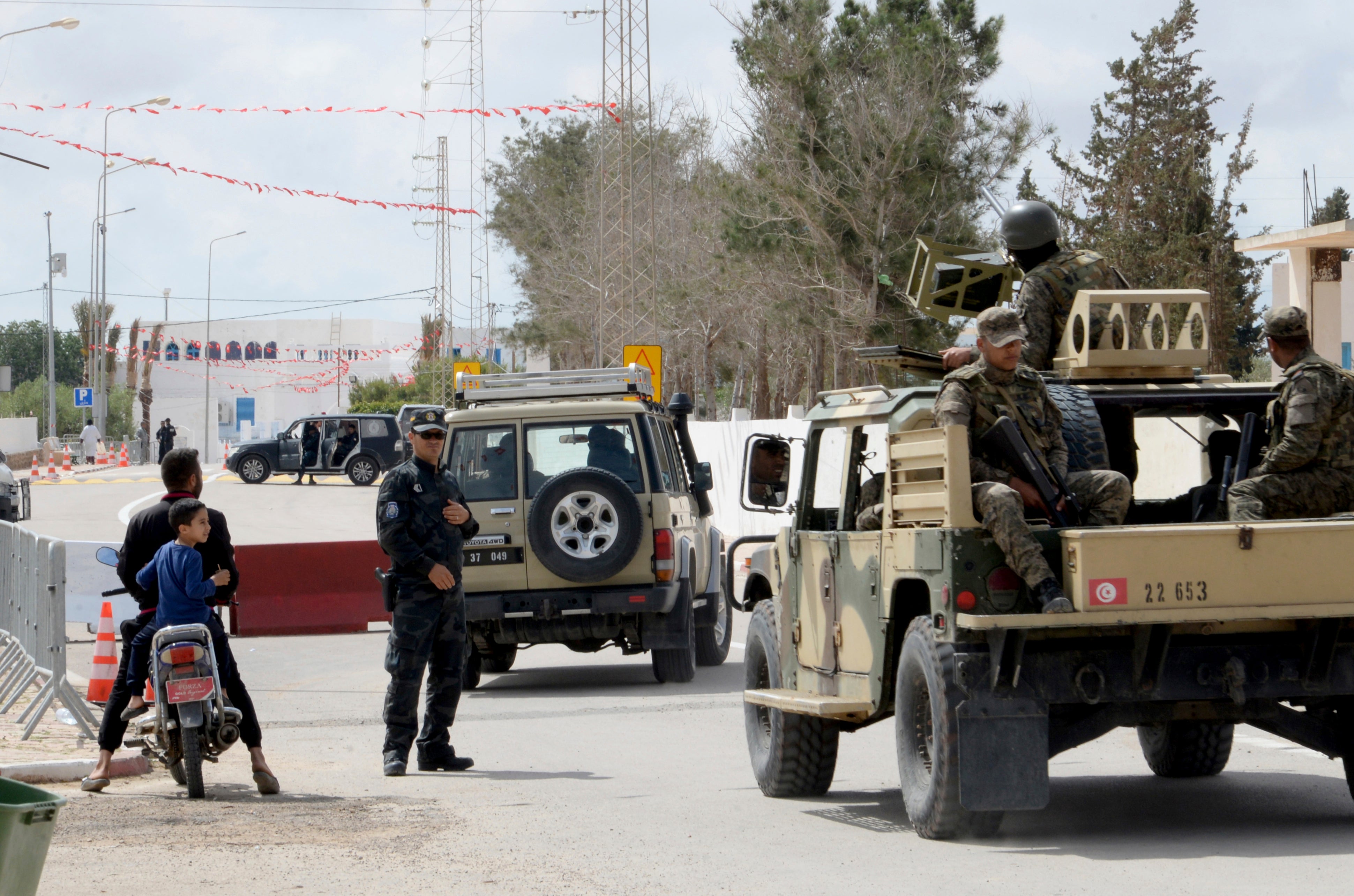What we can learn when a country slides from experimental democracy to dictatorship
By consuming fake news, by refusing to engage meaningfully with their political opponents, by failing to participate in elections or voting for candidates that reflected their identity rather than their interests, Tunisians failed themselves, writes Borzou Daragahi


They had one job. Tunisia’s international backers and its own political elite had years to ameliorate the economic despair that triggered the 2011 revolution that toppled the country’s dictator that led to the Arab world’s most successful experiment in democracy.
Over the years, policymakers were warned repeatedly that the country’s poor economic prospects and bad financial decisions were unravelling public faith in democracy and turning the country into a breeding ground for despair and the return of dictatorship.
Last week, the North African nation reached a new nadir when a gunman within the security forces opened fire at Jewish worshippers on an annual pilgrimage to the southern town of Ghriba, which hosts a 2,600-year-old synagogue that is one of the world’s oldest.
The West, especially France and the United States, should be ashamed of themselves for letting their very own poster child for Arab democracy deteriorate into a cautionary tale of diplomatic negligence. Tunisia could have been a model for the Arab world. It has an educated middle class, a homogenous population, and a small mostly urbanised population of 12 million. Even its Islamists were seeking to become democrats.
“If you can’t back something that is so easy to get right like Tunisia it doesn’t speak well of bringing democracy anywhere to the Arab world,” says Seifeddine Ferjani, a London-based political analyst and Tunisian. “Even the guys we were worried about came out and said they wanted democracy.”
Kais Saied, Tunisia’s would-be authoritarian, was elected to the presidency in late 2019. He was propelled to power by fake news about his rivals on social media and anti-democratic sentiments promoted on television channels bankrolled by the same absolute monarchies of the Arabian Peninsula that are the West’s steadfast partners.
Like any garden-variety authoritarian, Saeid began rolling back rights, threatening journalists, arresting dissidents and purging key institutions of independent figures
The jurist claimed to be a political independent who would streamline the messy governance, impose strong rule and get the country back in shape. Like any garden-variety authoritarian, Saeid began rolling back rights, threatening journalists, arresting dissidents and purging key institutions of independent figures. Among those arrested was Rached Ghannouchi, the leader of the moderate Islamist party that has played a key role in the country’s democratic growing pains.
But the 65-year-old has been even worse than typical tyrants.
At least Tunisia’s past authoritarians upheld women’s rights and promoted somewhat liberal social views. But Saeid is also a bigot and chauvinist. He has sought to roll back women’s rights and rammed through a constitution last year that was even more Islamist than the one that was crafted with the input of Tunisia’s Islamists.
Under his watch, Tunisia’s economy has only worsened, and he has shrugged off potential international help by claiming reports of people’s misery were exaggerated. He rejected an IMF deal last month.
Instead of grappling with people’s woes, he has launched pogroms against sub-Saharan Africans, shocking the world with openly racist taunts that created major diplomatic ruptures with other nations of the continent and caused an exodus of darker-skinned expatriates from Tunisia.
Saeid tried clumsily to walk back his attempts to accuse black Africans of seeking to “replace” native Tunisians. But it was not the first time he has embarrassed his country with toxic screeds. Just two years ago, he was recorded screaming that “the Jews” were behind ongoing protests against his erratic and dictatorial ways.
In the 9 May incident at the ancient synagogue in Djerba Island, two worshippers and three guards were killed. After at first suppressing the news and denying the killer was from the security forces, he blamed the moderate Islamist Ennahda Party for the shooting, even though he has opposed outlawing more extremist groups such as Ansar al-Sharia that have in the past involved themselves in terrorist activities. He ignored the anti-Semitic nature of the attack, and instead sought to cast it as a normal criminal incident. One of the dead is a French national, prompting authorities in Paris to open their own investigation.
Saeid did not pull the trigger, but he deserves a measure of blame for the attack by contributing to a political and social climate that made it and other such tragedies probable. For one thing, he has stuffed the security services with loyalists assigned to bring down his enemies rather than competently secure the nation.
“The problem is the lack of accountability and credibility,” says Ferjani. “This is a more populist Tunisia, where Kais Saeid prefers narrative over engagement. The terror attack is symbolic. What the failures are and what can be learnt will be difficult to get to. We simply don’t know.”
Tunisia has fallen a long way since the joyous weeks after 14 January 2011, when hopeful Tunisians marched along Avenue Habib-Bourguiba in the capital and called for democracy. But Kais and the West are not the only ones responsible for this descent.
By consuming fake news, by refusing to engage meaningfully with their political opponents, by failing to participate in elections or voting for candidates that reflected their identity rather than their interests, Tunisians failed themselves.






Join our commenting forum
Join thought-provoking conversations, follow other Independent readers and see their replies
Comments